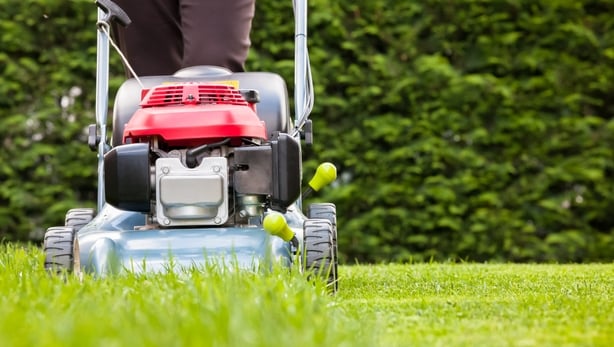Hay fever suffers, be warned: this weekend is allegedly one of the worst for pollen count, bringing with it puffy, runny eyes, sneezing and blocked noses for those of us that struggle with seasonal allergies.
Pollen is likely to spike this weekend as many people are making the most of the sunny weather and cutting their grass, sending pollen spores flying through the air, stirred up by the wind.
Ruth Morrow, respiratory nurse with the Asthma Society, joined Drivetime to talk about tips for managing hay fever as the balmy summer continues.

Hay fever can still go undiagnosed despite the symptoms being bothersome and sometimes quite severe. Morrow said that people should be on the alert for signs of allergies like sneezing and itchy, blocked, or runny noses, which are the most common symptoms.
Red, itchy, and watery eyes are also a common sign, as well as an itchy throat, inner ear or mouth and post nasal drip, where you have a drip of fluid down the back of the throat.
"Headaches can be a problem with it also because of the blocked sinus area, and as a result, you can get reduced concentration levels and just a general feeling of feeling unwell", Morrow said. "Very problematic if you're an exam student this time of year if they're suffering like this."
"Not everyone has to have all of these symptoms, they can have a mixture of them", she added, saying that it's best to speak to a healthcare professional if you think you might have hay fever.
When it comes to managing hay fever and avoiding too much contact with pollen, Morrow suggests keeping windows closed, especially at night when the pollen count is high.
"It is okay to open your windows early in the morning, let the air circulate through your house but close them, I'd say, around 12 o'clock, certainly don't have them open later on in the afternoon."

The Asthma Society has an app to help you monitor the pollen throughout the day, to be able to plan for your day and "minimise the time that you actually spend outside when the pollen count is high".
If you have spent time outdoors, shower once you're indoors to wash off the pollen.
When outdoors, wearing wrap-around sunglasses can help shield you from pollen. "Put some Vaseline around the nostrils and that will trap it and stop it going up into the sinus area", Morrow suggests.
Drying clothes outside in sunny weather is ideal this time of year, but if you suffer from hay fever be sure to give them a shake before you bring them in, and "don't put bed sheets straight onto the bed directly when you do bring them in because you'll end up getting into bed and inhaling that pollen and you're awake at night sneezing and coughing".
Exercising in the morning time can be helpful for those of us who want to get out of the house, and try to avoid exercising in areas where there's freshly cut grass.
For more tips on managing hay fever, listen back to the full interview above.

